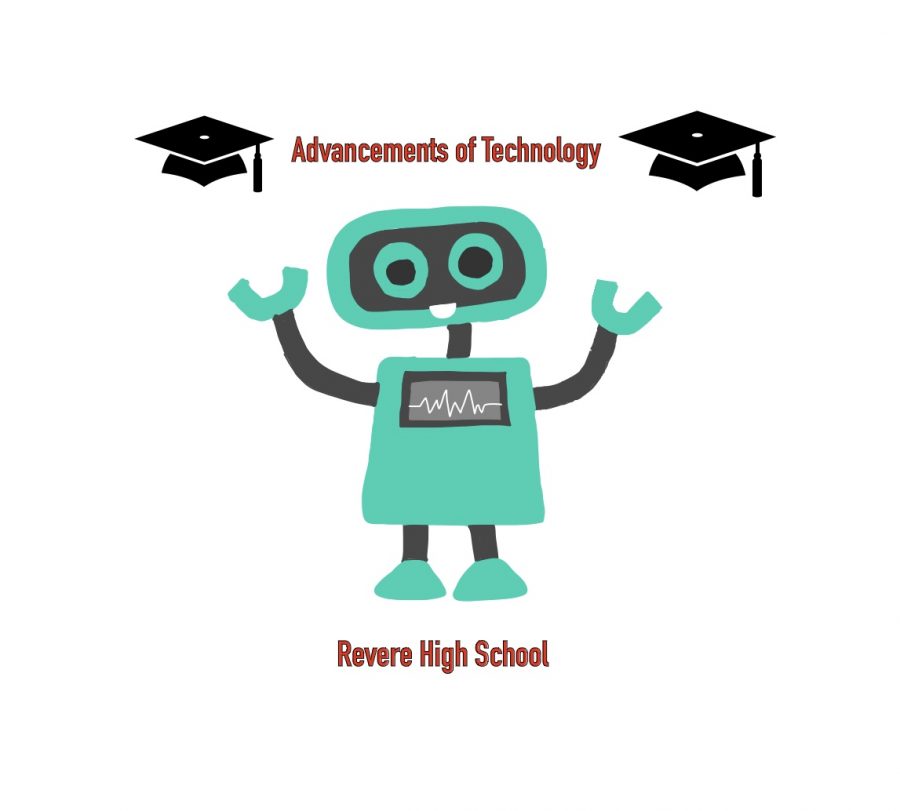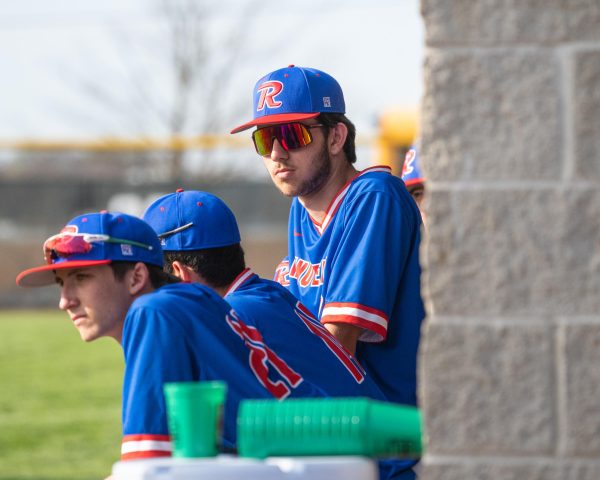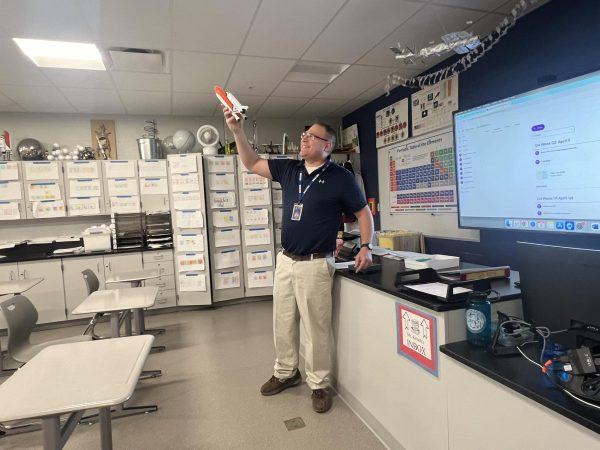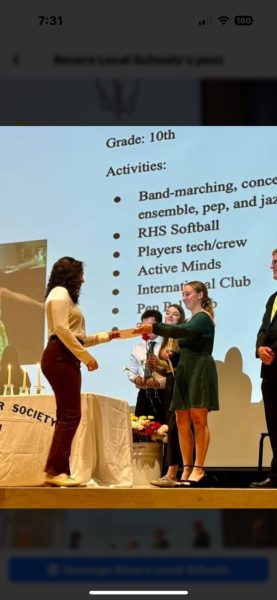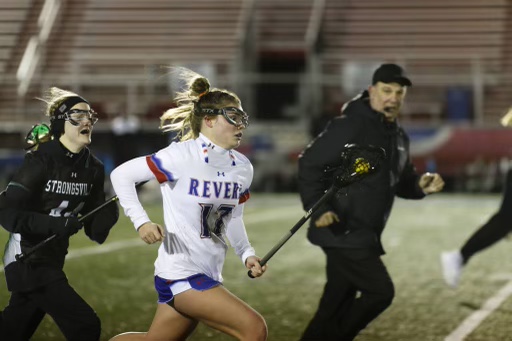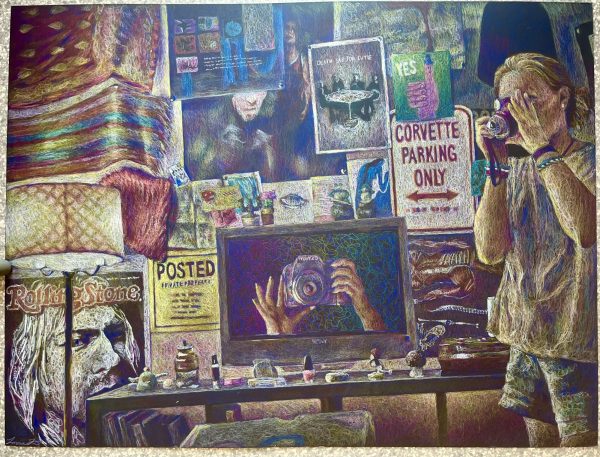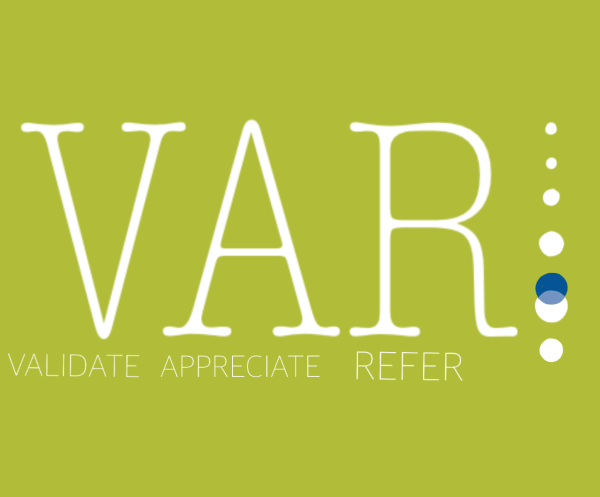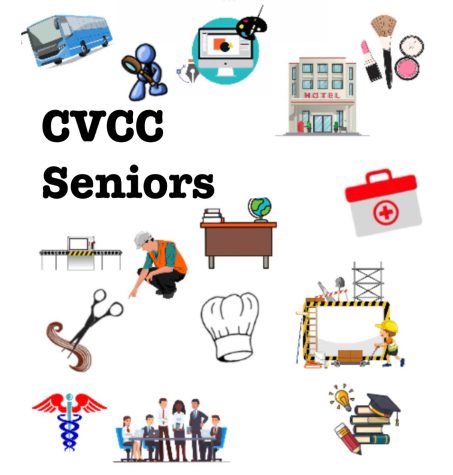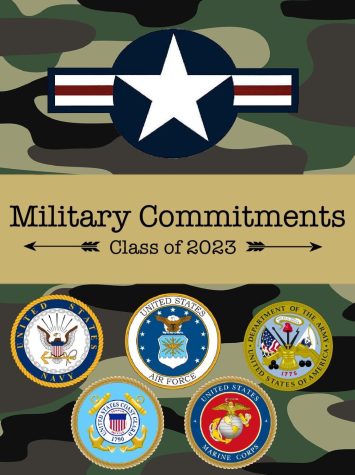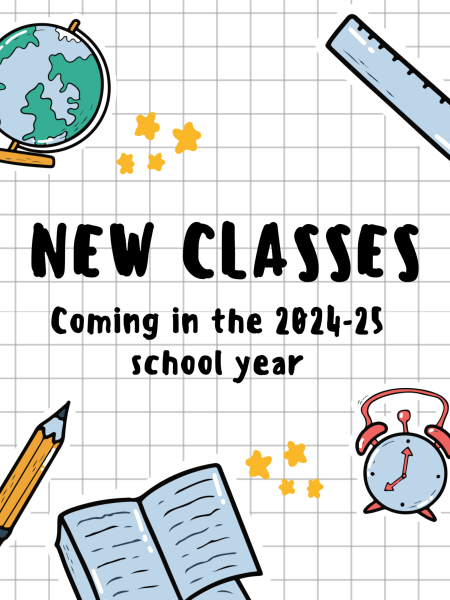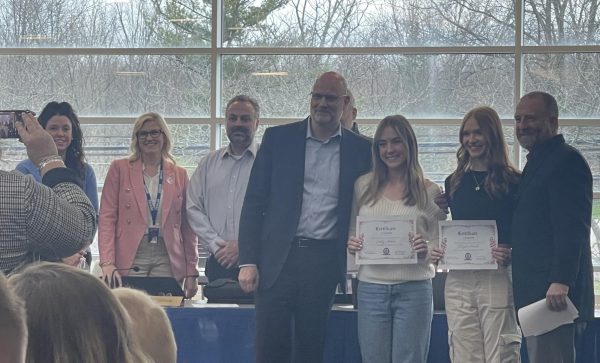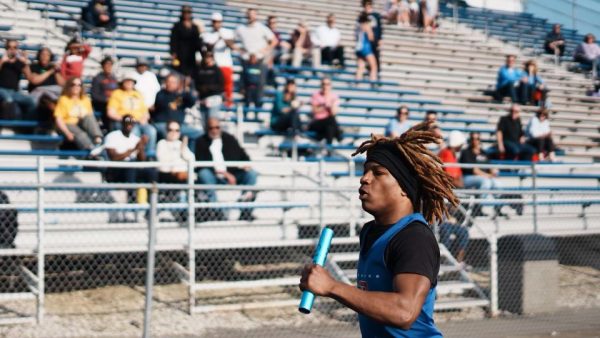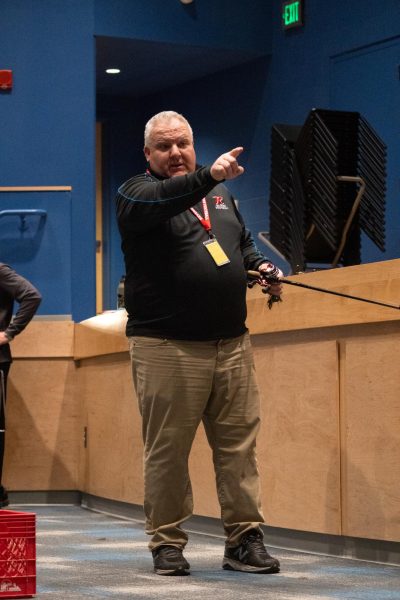COVID-19 continues to create change
New advancements in using technology are a positive outcome of the pandemic.
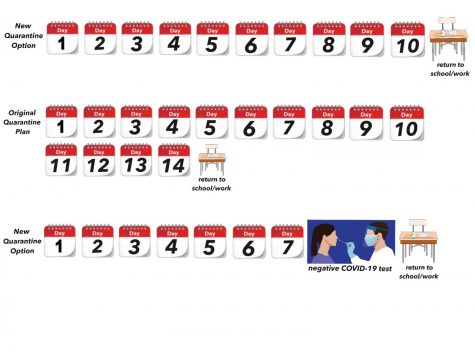
As the Coronavirus continues to spread throughout the world, school districts face the challenge of adapting and overcoming spontaneous obstacles.
To help the public while staying safe, the CDC decided to alter their recommended quarantine time from fourteen to ten days, causing the Revere Local School District to shorten their quarantine time.
In an attempt to help workers stay safe while keeping their jobs, the CDC reduced the amount of time required to quarantine after being exposed to a person who has COVID. The CDC explained the reasoning behind this in a statement on their website.
“Reducing the length of quarantine may make it easier for people to quarantine by reducing the time they cannot work. A shorter quarantine period also can lessen stress on the public health system, especially when new infections are rapidly rising,” the CDC wrote on their website.
CDC COVID-19 incident manager Dr. Henry Walke further explained in a press conference the reasons behind this decision.
“[The CDC heard] anecdotally from our partners in public health that many people are discontinuing quarantine ahead of time because there’s pressure to go back to work [and] to get people back into school. It imposes both a mental and possibly also [a] physical burden on individuals,” Walke said.
Even though the CDC made this decision, they continue to endorse and recommend that one should self isolate for the full, and previously required, fourteen days.
“[The] CDC continues to endorse quarantine for fourteen days and recognizes that any quarantine shorter than fourteen days balances reduced burden against a small possibility of spreading the virus. [The] CDC will continue to evaluate new information and update recommendations as needed,” the CDC wrote on their website.
If a student comes in contact with COVID at school and decides to return to school after ten days, they will need to maintain six feet social distance while in the classroom. Currently, students are able to achieve three feet social distancing at school, so accommodations will need to be made if a student returns to school after only ten days.
While facing uncertain circumstances each day, Superintendent Dr. Matthew Montgomery believes the most important idea remains taking care of yourself, no matter the situation. Montgomery explained the importance of personal hygiene.
“The department of health, and the CDC are saying wash your hands, wear a mask, and stay away from people. That has not changed since the onset of this pandemic,” Montgomery said.
Revere Communications director Jennifer Reece further explained what this change means for students.
“Close contacts should self-monitor for symptoms for fourteen days following exposure. Close contacts who continue to attend in-person K-12 school should also follow normal protocols for quarantine when outside of the K-12 classroom environment, including staying home and, if possible, staying away from people who are at higher risk for severe illness,” Reece said.
In addition to people who have contact with someone with COVID, those who have tested positive for COVID should also quarantine for ten days.
As schools change their environment to offer a safe place to learn, academics are changing as well.
Academics in a Pandemic
Due to the prevalence of the COVID-19 pandemic, Revere High School continues to adapt and change methods of education, while students find safe ways to learn.
Throughout the nation, schools must make decisions on how to safely and effectively educate their students.
Superintendent Dr. Matthew Montgomery explained how learning environments use technology in order to positively impact their education.
“The mode in which we are able to provide instruction is more varied now than a year ago. Teachers and students are comfortable utilizing technology to assist in the learning process,” Montgomery said.
While students were taxed with adapting to remote learning last spring, the circumstances taught them how to be flexible and learn creatively. Counselor Elizabeth Long commented on what she notices in the difference of learning environments.
“I have noticed that many students are becoming so much more aware of their learning preferences. I have talked with some students who feel that they learn better in-person while others have found that remote learning is a way that they learn better,” Long said.
Montgomery explained how the education system has changed since the pandemic started.
“We now have an online option for any family who does not want to attend in a brick and mortar environment,” Montgomery said.
Revere, like every school district, must prepare for any situation that occurs during this pandemic. Long commented on the positive influences these changes are causing.
“I think the most positive influence on students’ academics is that the changes in education that have come about with the pandemic have forced everyone: students, teachers, counselors, and administrators alike, to rethink education,” Long said.
Along with the students, teachers made accommodations to the different types of learning happening this year. Montgomery commented on the teachers in the district.
“Our teachers have been innovative and brave as they navigate through last school year and this school year. It was a tremendous ask for them to be here. It shows their dedication to this community,” Montgomery said.
During this time, students must be able to access their classes online at any given moment. Even though Revere stayed in-person for the majority of the year so far, students are still required to quarantine if necessary.
Senior Julia Lutman explained the changes made to her schedule due to learning in an online atmosphere.
“[Overall,] not too many changes were made to my daily schedule while learning online… a regular day consists of zooming in and out of most of my classes,” Lutman said.
With being a student comes stress. Now, high schoolers must be able to learn while at home and face additional mental health repercussions from being in a different learning environment.
Mental Health in a Pandemic
The Revere High School counseling department is sending Wellness Wednesday emails, quarantine bags, and starting many new programs to help students through the pandemic.
Counselor Elizabeth Long started Wellness Wednesday during the beginning of the pandemic back in March. Now, the program has been taken over by fellow Revere High School counselor Emily Rion who sends out an email every Wednesday from the counseling office for students.
In each email there is an introduction, body paragraph, and conclusion on a specific mental health topic or tip. Long explained why she started the program and how she thought the counseling office could reach out to students even online.
“At the start of remote learning last March, our counseling team realized how important it was to stay grounded and focus on wellness during times of such profound change. We wanted to provide everyone at Revere with simple ways that they could pause mid-week and focus on mental wellness,” Long said.
Rion who runs the program now, centers her Wellness Wednesday emails around what students come to her for.
“I cater Wellness Wednesdays to things that kids are coming in to see me about. Any issues that they’re having, if it’s working through stressors or anxiety from being at school, and obviously at school during a pandemic is stressful in and of itself,” Rion said.
Along with Wellness Wednesday, Rion and the counseling department have put together many other programs to help students and staff members through the stress of school during a pandemic. This includes: new student support groups for online and in-person students, a signs of suicide presentation from Greenleaf Community, and Highland Springs mental health facility for teachers awareness of students during a pandemic. Another interesting program is a partnership with Hope Meadows.
“I’m also going to be starting up and partnering with Hope Meadows hopefully in the spring time to get an equestrian therapy program for students,” Rion said.
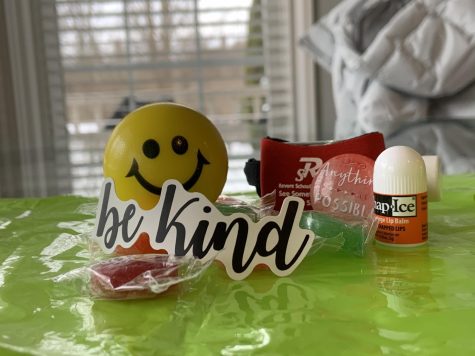
A new program that is taking action now, are quarantine bags. Rion is giving bags to newly quarantined students. The bags include items that may help students through their quarantine.
“There are stress balls, relaxation tips [and] positive messaging in there. I also worked with another company out of Ohio to get aromatherapy sticks, like peppermint and lavender. Just a message from the counseling office to tell [students] we are here we are thinking about you guys no matter what,” Rion said.
Long expressed how she can see how students during quarantine can enjoy these quarantine bags and how the circumstances are different now versus March.
“In the spring, everyone was experiencing remote learning. We were all ‘in it together.’ However, as students faced quarantines this fall, they reported a feeling that the rest of the school was continuing on without them while they stayed home . . .We wanted to help students and make their time in quarantine easier,” Long said.
Superintendent Dr. Matthew Montgomery explained how students staying in school can help through tougher issues.
“We can’t monitor abuse, and if you look at the stats: spousal abuse, child abuse, drug abuse, alcohol abuse all went up [in] March, April, May and June. Without having eyes on students or staff members, it increases the risk of emotional distress and not being able to help those individuals,” Montgomery said.
Montgomery also sees how Rion and the department are helping while still in school.
“Mrs. Rion and the department are trying to find ways to mitigate stress while people are here. I think [quarantining students when necessary is] a lesser evil than shutting the place down, because that also creates emotional stress,” Montgomery said.
During a pandemic, Revere counselors are trying to reach out to students, and Rion wants to get the message across that mental wellness should not be pushed aside.
“It goes along with Mazal’s hierarchy of needs. Basic needs need to be met for us to do anything else; just like we need food, water and shelter, we also need to have mental wellness. If you are stressed out and anxious you’re not going to be able to function the way you would like to,” Rion said.
Rion and Long want to get across that the counseling department is here to help.
“It’s okay to come down to the counseling office. Everybody wants to out of stigma or fear, but we’re here for that, we’re here for students not just for schedule changes,” Rion said.
On top of school, some students face the stress of being essential workers.
Essential Student Employees
Students who are Essential workers face the possibility of COVID-19 exposure both at their place of employment and school, which have different environments.
Essential workers include pharmacy employees, grocery store workers, and fast food workers. They allow essential businesses, such as grocery stores and childcare facilities, to continue operating during the pandemic.
Junior Nathan Cronin, has worked as a cashier for two and a half years at Colonial Pharmacy. He works about twenty hours a week and attends Revere in-person.
“[Colonial Pharmacy is] not usually too busy, but with COVID and a possible vaccine coming in, we are pretty busy,” Cronin said.
Even with the recent influx of customers, Cronin feels safe at his job.
“I feel super safe. We are always wearing masks and behind plexiglass. There is not much direct contact with customers,” Cronin said.
The school’s environment varies from working behind a counter.
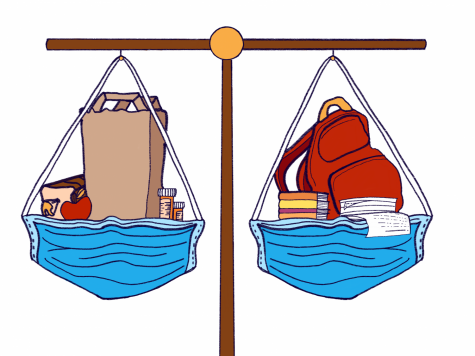
“I usually tend to feel safe at school, but there are always a few students who do not follow COVID protocol or wear their masks below their nose. I feel much safer at work because of the [fewer] people I come in contact with,” Cronin said.
Revere started the school year in its phase one plan, where all students who choose to attend in-person classes go every day. So far, Revere has stayed in phase one for this school year.
“I think [we] could be more strict on mask policies. To an extreme, we could even go to phase two, where [fewer] kids would be in the school at a time,” Cronin said.
After winter break, Governor DeWine changed the policy where COVID-19 exposed students would not have to quarantine at home, as long as they wear a mask and are distanced. Revere is now following this new policy.
“[Ohio’s] newest quarantining policy does not seem right to me. I think with so many students not taking masks seriously, students should be quarantined. Taking students out to quarantine is the smartest and safest option,” Cronin said.
Senior Bella Pignataro attends Revere in-person and works as a clerk at Colonial Pharmacy for about eight hours a week.
Ohio, currently under a stay-at-home order along with a curfew from ten p.m. and five a.m., prohibits large gatherings above ten people.
“We all have to be making sacrifices right now and so I really don’t think going to parties [and] hanging out with a large amount of people is the most mature thing to be doing,” Pignataro said.
Senior Preet Labana works as a utility clerk at Giant Eagle for around twenty hours a week. She also attends school in-person.
Students are required to wear a mask at school and are supposed to be covering both their mouth and nose.
“Some people don’t wear their masks right. I don’t think it’s safe,” Labana said.
As the pandemic continues, the Revere Local School District must constantly adapt to challenges in order to keep the students and staff safe. Currently, the faculty will be reviving the first round of the Pfizer vaccine on February 11th.

